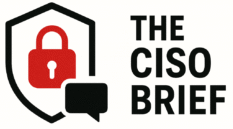Summary Points
-
Data Breach Impact: Episource announced a data breach affecting over 5.4 million individuals due to a cyberattack that occurred between January 27 and February 6, 2025, resulting in the theft of sensitive health information.
-
Exposed Information Details: The compromised data may include personal identifiers such as full names, addresses, email addresses, phone numbers, Social Security numbers, and medical record details; however, no banking or payment information was involved.
-
Notification Process: Although notifications to affected individuals began on April 23, 2025, the breach was officially reported to health authorities on June 6, with no indication of specific clients affected, as the notices were sent on behalf of Episource’s clients.
- Advice for Individuals: Impacted individuals are advised to be vigilant against unsolicited communications, monitor their benefits statement, and check bank and credit card statements for any suspicious activity.
The Issue
In a significant cyber incident, Episource, a healthcare services company in the United States, reported a data breach affecting over 5 million individuals. The breach, which occurred between January 27 and February 6, 2025, was discovered when abnormal activity was detected within their systems. The compromised data includes sensitive information such as full names, physical and email addresses, phone numbers, insurance details, medical records, dates of birth, and Social Security numbers, though it’s important to note that no banking data was exposed. The breach affects data from Episource’s clients, which include various healthcare providers and insurers, although specific providers have not been named.
The notification regarding this data breach was made public after filings with the U.S. Department of Health and Human Services and individual notifications to impacted patients began on April 23, 2025. Episource has emphasized the importance of vigilance for those affected, recommending that individuals monitor communications and review their benefits and financial statements to safeguard against potential misuse of their exposed data. This incident serves as a stark reminder of the vulnerabilities inherent in the digital handling of sensitive health information, and the ongoing challenges faced by healthcare entities in securing their systems against cyber threats.
Potential Risks
The recent breach at Episource, which compromised the health information of over 5 million individuals, poses a multifaceted risk to various sectors, magnifying the potential for cascading effects on businesses, users, and organizations reliant on sensitive data. As a provider of medical coding and data analytics services to healthcare plans, Episource’s vulnerability reveals not just a lapse in security but also exposes its clients—insurers and healthcare providers—to reputational damage, regulatory scrutiny, and financial losses stemming from potential lawsuits and compliance violations. This incident could deter patients from engaging with affected providers, fearing for their personal data’s safety, and may even prompt higher scrutiny from regulators, culminating in increased operational costs for all stakeholders involved. Furthermore, the pervasive threat of identity theft and fraud against impacted individuals could engender a climate of distrust, pointing to the urgent need for robust cybersecurity measures across the healthcare landscape to safeguard not just proprietary information but also the sanctity of patient-provider relationships.
Possible Actions
Timely remediation is critical in the realm of cybersecurity, particularly when the stakes involve sensitive patient data. In the recent case of a healthcare SaaS firm reporting a breach that affects 5.4 million patients, rapid response and effective mitigation strategies are paramount to safeguard patient privacy and maintain trust.
Mitigation Steps
- Immediate Incident Response
- Comprehensive Risk Assessment
- Secure System Patching
- Enhanced Encryption Protocols
- User Notifications and Support
- Regulatory Compliance Review
- Continuous Monitoring and Auditing
- Employee Training Programs
NIST CSF Guidance
The NIST Cybersecurity Framework (CSF) emphasizes the significance of identifying, protecting, detecting, responding to, and recovering from incidents. It suggests specific controls to enhance resilience against breaches. For detailed procedural guidance, refer to NIST Special Publication (SP) 800-53, which outlines security and privacy controls for federal information systems and organizations.
Explore More Security Insights
Stay informed on the latest Threat Intelligence and Cyberattacks.
Learn more about global cybersecurity standards through the NIST Cybersecurity Framework.
Disclaimer: The information provided may not always be accurate or up to date. Please do your own research, as the cybersecurity landscape evolves rapidly. Intended for secondary references purposes only.
Cyberattacks-V1

